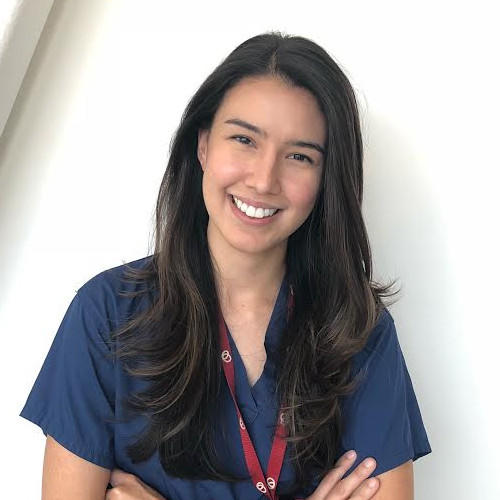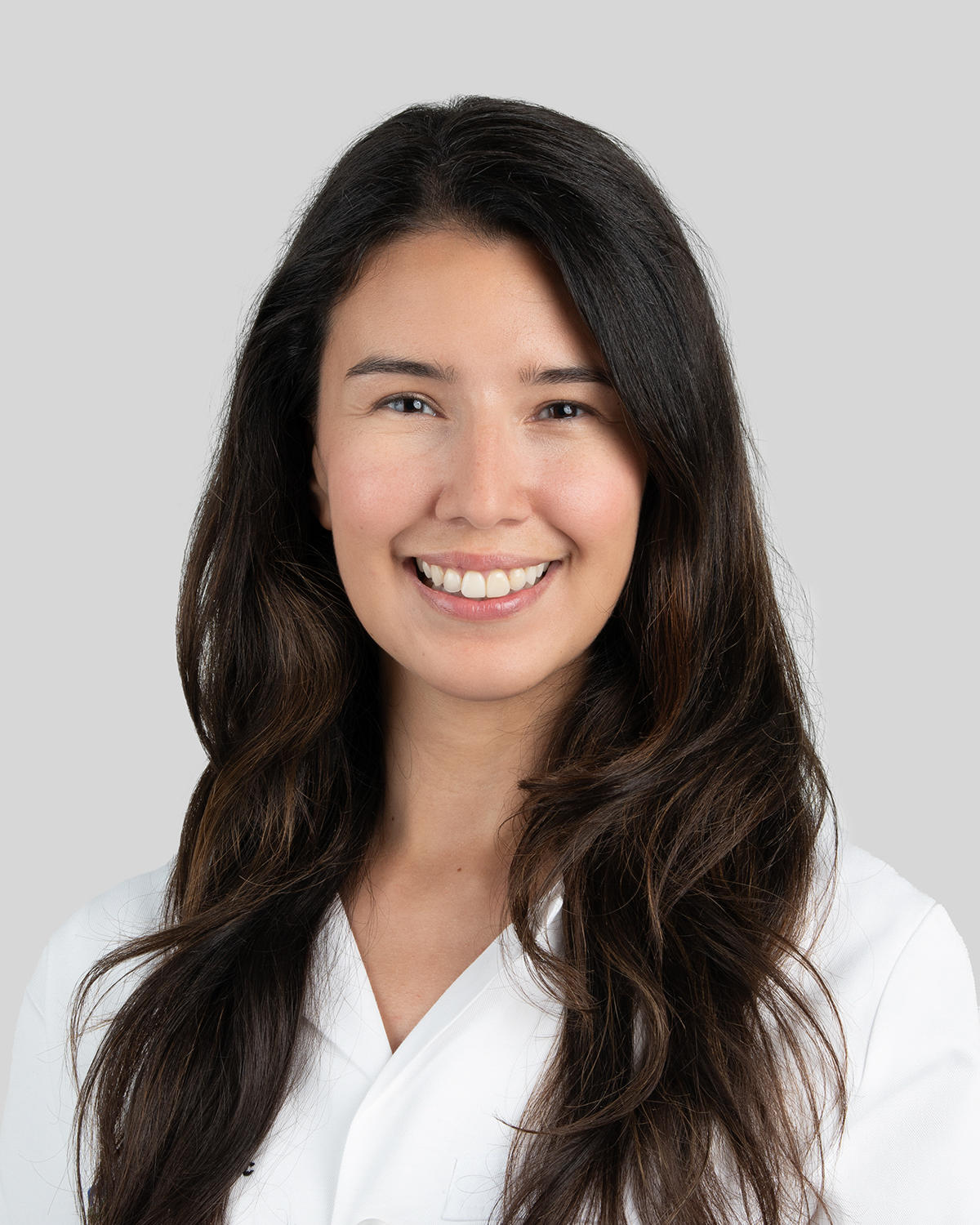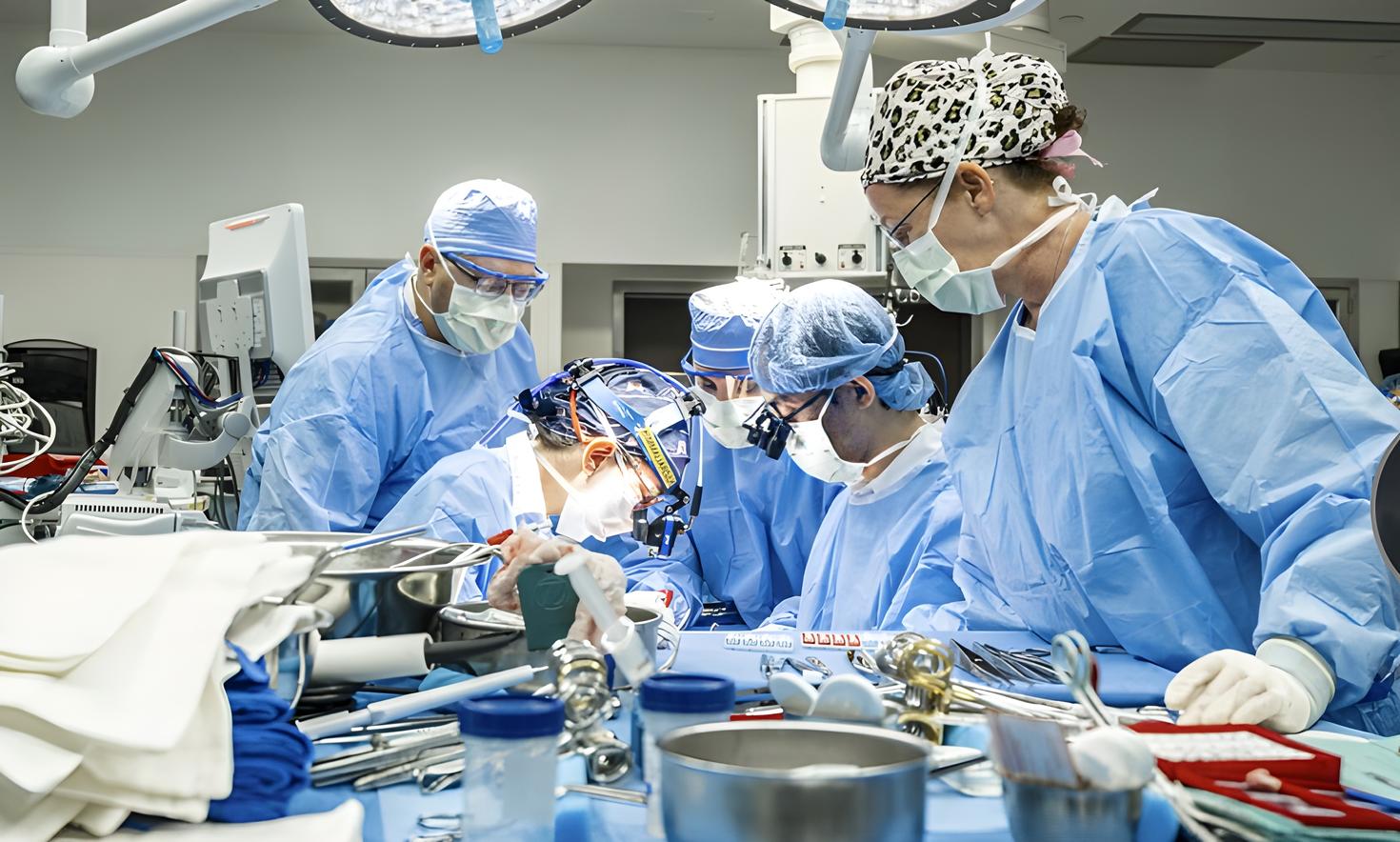“I remember my dad telling me that his dad had died from ALS [amyotrophic lateral sclerosis], and that it was a disease that eats your nerves and your body dies, but your brain is still alive. At six years old, I decided, ‘I want to be a surgeon. I want to invent a surgery to cure ALS.’”
That childhood resolve evolved into her life’s work. After graduating from the Cumming School of Medicine at the University of Calgary in 2014, she decided to focus on cardiac surgery. That’s when she looked to the University of Ottawa, where she credits her residency experience for helping to shape her into the surgeon she is today.

“I ranked Ottawa as my first choice for residency because I felt that it'd be the best place in Canada to train to become a heart surgeon.”
Dr. Donna Kimmaliardjuk
— Faculty Alumna and Canada’s first Inuk heart surgeon
“You know, I ranked Ottawa as my first choice for residency because I felt that it'd be the best place in Canada to train to become a heart surgeon,” says Dr. Kimmaliardjuk. “And I still feel that's true.”
Now an expert in advanced coronary revascularization, coronary artery bypass grafting, and myectomy surgery, today Dr. Kimmaliardjuk practices at the Cleveland Clinic, one of the world’s top hospitals for cardiac surgery and cardiovascular care. She was also the first Inuk person to practice in this specialty in Canada.
Her patients praise her attentiveness and calm demeanor. As one patient put it, “Dr Donna ‘Special K’ was the most caring and genuine person I have ever met. Instead of surgery being a nightmare I looked forward to it with a calm and confidence that everything was going to be alright.”
Dr. Kimmaliardjuk says her inspiration still stems from that original desire to save people the grief of losing someone dear, or in her case, the regret of never having met them. “At the end of the day, it's a person. It's someone's mother or wife, husband, daughter, aunt, brother, sister.” she says.
Representation and patient connection
Dr. Kimmaliardjuk’s work extends beyond the operating room and beyond borders. She understands the need for greater access and more diverse representation in medicine – particularly in the northern territories where she still has family and strong connections. In many cases, for people in remote communities receiving the care they need means traveling far away from loved ones to large urban centres and a centralized health system that is often ill-adapted to Indigenous realities. The cultural and emotional toll of such displacement is something Dr. Kimmaliardjuk deeply recognizes.“I think in medicine, having healthcare providers who come from a diverse background is incredibly beneficial for patients and the healthcare system overall. They understand nuances and realities that others may not.”
Her experience is a lived one. While completing her residency in Ottawa, Dr. Kimmaliardjuk once treated an Inuk baby born with a congenital heart condition. While reviewing the baby’s medical chart, she found a deeply troubling line:
“There was a note in the chart that said, ‘presumed maternal drug use.’ There was no evidence for that, no reason to believe that. The only reason that note was there was because the mom was Inuk. That was incredibly hurtful and upsetting to see.”
That moment was a stark reminder that systemic racism still exists in Canada.
Dr. Kimmaliardjuk reported the incident. The hospital and the university took action. But for her, something had shifted.
“That was a turning point for me. I realized that racism still exists — even in 2020, in Ottawa. It made me realize I needed to speak up. That it was important that I be visible and take up space.”
That’s why, even though she’s now based in the United States, Dr. Kimmaliardjuk remains deeply involved in improving care in Canada. She sits on several national committees, including the Canadian Women’s Heart Health Advocacy group, the Heart and Stroke Council on Coronary Artery and Vascular Disease, and the Indigenous Health Steering Committee for the Canadian Royal College of Physicians and Surgeons.
The desire to pass it on
Now a mother, Dr. Kimmaliardjuk says this new chapter has only strengthened her sense of purpose. Her son, she explains, carries two cultures and two heritages. She wants him to walk proudly with both.
“Becoming a mom made me even more aware of what I’m doing. I want my son to know who he is, where he comes from — and that he can go wherever he wants to go.”

“Becoming a mom made me even more aware of what I’m doing. I want my son to know who he is, where he comes from, and that he can go wherever he wants to go.”
Dr. Donna Kimmaliardjuk
At the same time, she often shares honest reflections with students and aspiring health professionals: “Self-doubt is normal. Even I go through it when I have really tough cases. I think ‘Can I do this? Am I good enough?’ But I tell people: don’t let it stop you from pursuing what you really want.”
Her advice is grounded in experience: “There will be hard times. But everything is temporary. Surround yourself with people who support you. And above all: keep going. Keep working through it. If you want it, you can make it happen.”
Humble in the face of recognition
Dr. Donna Kimmaliardjuk embodies a model of care that is both clinically excellent and deeply rooted in human, cultural, and social understanding.
Recipient of the Indspire Award for Inuit Youth in 2018 and Queen’s University’s “One to Watch” award in 2019, Dr. Kimmaliardjuk never sought public recognition or prestige. These honours reflect her remarkable path, as well as a hopeful future for greater representation and better tailored care for Indigenous and other underserved communities.
That hopeful future for Indigenous healthcare is core to the mission of the Faculty of medicine’s Indigenous Program: to recruit, support, and train Indigenous medical students, while weaving Indigenous perspectives into both medical education and patient care. In the coming years, the Centre for Indigenous Health Research and Education (CIHRE) will also build on these initiatives by supporting faculty-wide Indigenous health research, education, and community engagement.
Support the Faculty of Medicine today!
To support this program, you can select the Indigenous Medical Education Fund from the drop-down menu in the designation field.
